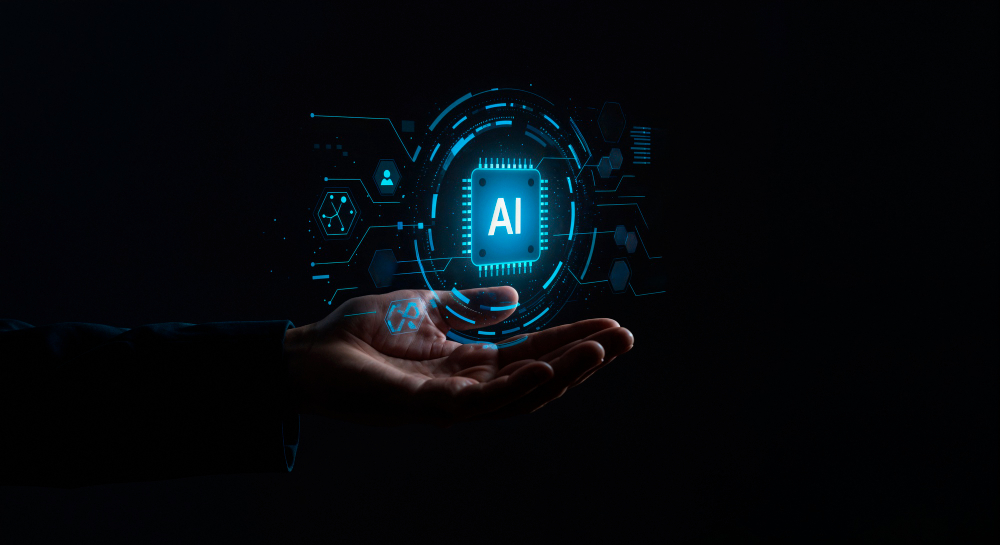Artificial Intelligence (AI) is no longer a futuristic concept it has become a core business driver across industries. In 2025, organizations are moving beyond experimenting with AI tools and actively embedding them into daily operations. This is where AI integration services play a transformative role. From automating workflows to delivering hyper-personalized customer experiences, AI integration is enabling companies to stay competitive, innovative, and future-ready.
In this blog, we’ll explore how AI integration services are transforming businesses in 2025, their key benefits, industries leveraging them, and what the future holds.
What Are AI Integration Services?
AI integration services refer to the process of seamlessly embedding artificial intelligence technologies such as machine learning models, natural language processing (NLP), predictive analytics, and computer vision—into existing business systems, applications, and workflows.
Rather than replacing legacy systems, these services bridge the gap between traditional IT infrastructures and modern AI-powered solutions. For example:
-
Integrating AI chatbots with CRM platforms for real-time customer support
-
Embedding predictive analytics into ERP systems to optimize supply chain management
-
Using AI models in marketing tools for personalized campaigns
This integration ensures that businesses can maximize the power of AI without disrupting core operations.
Why AI Integration Services Matter in 2025
In 2025, businesses face challenges such as rising customer expectations, global supply chain volatility, cybersecurity threats, and the need for faster decision-making. AI integration services address these issues by:
-
Enhancing Efficiency – Automating repetitive tasks reduces human error and increases productivity.
-
Boosting Decision-Making – Data-driven insights enable faster, more accurate decisions.
-
Improving Customer Experience – Personalized engagement and 24/7 AI-driven support improve satisfaction.
-
Cutting Costs – AI optimizes processes, reducing operational expenses.
-
Scaling Easily – AI solutions adapt as businesses grow, ensuring long-term flexibility.
In short, companies that invest in AI integration are building future-proof business models.
Key Areas Where AI Integration Services Are Driving Transformation
1. Customer Experience (CX)
AI-powered chatbots, voice assistants, and recommendation engines have become the backbone of customer service. Integration with platforms like Salesforce or HubSpot allows businesses to deliver personalized interactions at scale, reducing churn and increasing loyalty.
2. Operations & Automation
Robotic Process Automation (RPA) combined with AI is helping enterprises automate invoice processing, HR onboarding, compliance checks, and more. By integrating AI into workflows, organizations save time and costs while improving accuracy.
3. Data Analytics & Business Intelligence
AI models integrated with BI tools transform raw data into actionable insights. Predictive analytics helps forecast demand, detect fraud, and optimize resources, giving leaders a competitive advantage.
4. Marketing & Sales
AI-driven CRMs and campaign tools enable hyper-personalized messaging, intelligent lead scoring, and conversion tracking. Integration ensures that marketing efforts are data-backed and ROI-driven.
5. Cybersecurity
AI integration with security systems enables real-time threat detection, anomaly detection, and automated incident response, strengthening organizational defense against cyberattacks.
Industries Benefiting from AI Integration in 2025
-
Healthcare – AI integration supports diagnostic tools, patient monitoring, and administrative automation, improving both care delivery and hospital efficiency.
-
Finance – Banks and fintech companies use AI to detect fraud, assess credit risks, and deliver personalized financial advice.
-
Retail & eCommerce – Personalized product recommendations, inventory management, and demand forecasting improve customer experience and profitability.
-
Manufacturing – AI-driven predictive maintenance, supply chain optimization, and quality control are reshaping production processes.
-
Transportation & Logistics – From route optimization to autonomous fleet management, AI integration enhances reliability and cost efficiency.
Benefits of AI Integration Services
Businesses investing in AI integration services unlock a wide range of benefits:
-
Operational Efficiency – Automation streamlines workflows and reduces bottlenecks.
-
Data-Driven Culture – AI democratizes insights, enabling smarter decision-making across departments.
-
Customer-Centric Approach – Personalized services increase engagement and retention.
-
Cost Optimization – Eliminating inefficiencies directly impacts profitability.
-
Scalability & Flexibility – AI grows alongside business needs, ensuring long-term sustainability.
Challenges in AI Integration (and How to Overcome Them)
While the potential is enormous, organizations often face barriers such as:
-
Legacy System Compatibility – Older systems may not easily integrate with AI tools.
Solution: Use APIs and middleware to enable seamless connectivity. -
Data Privacy & Security Concerns – AI requires access to vast datasets, raising security issues.
Solution: Implement strong compliance frameworks like GDPR and AI ethics guidelines. -
High Implementation Costs – Small businesses may struggle with upfront costs.
Solution: Start with scalable pilot projects before full-scale integration. -
Skills Gap – Lack of AI expertise can hinder adoption.
Solution: Partner with AI integration service providers or invest in employee training.
Future of AI Integration Services
Looking ahead, AI integration will continue to evolve in three major directions:
-
Generative AI in Business – Integration of generative AI into design, content creation, and strategy planning.
-
AI + IoT Synergy – Connected devices (IoT) combined with AI will create smarter ecosystems in healthcare, logistics, and smart cities.
-
Autonomous Decision-Making – Businesses will increasingly rely on AI-driven systems to self-optimize processes with minimal human intervention.
By 2030, AI integration will not just be an option—it will be a necessity for business survival and growth.
Conclusion
In 2025, businesses are realizing that AI integration services are more than just a technological upgrade they are a strategic enabler of transformation. From streamlining operations to delivering exceptional customer experiences, AI integration is helping organizations unlock new levels of efficiency, innovation, and growth.
Companies that embrace AI integration today will be tomorrow’s industry leaders, while those who delay risk being left behind. The time to act is now.


